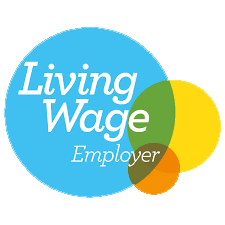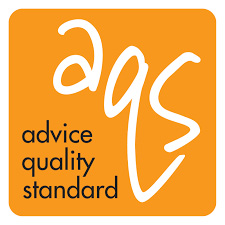Cost of living crisis
We are campaigning for local and national changes in response to the cost of living crisis.
Part of this work includes research and sharing information about how the cost of living crisis is affecting people locally.
Cost of living crisis report 2022
This report shows that poverty in the city is much worse than before the pandemic.
You can read the summary report here.
You can read the full report here.
You can read our press release here.
Poverty now affects more households, with an 84% increase in households depending on Universal Credit who are unemployed. This is 4135 households more than previously.
Child poverty figures were at 24% in Hove and Pavilion and at 32% in Kemptown in 2020. We think these figures are increasing. Children entitled to free school meals in the city rose by 17% by 2021.
Households most likely to be in the deepest poverty are:
- Single parent households
- Households where someone has a disability
- Households where the head of household is from a BAME community (black, asian and minoritised ethnicities)
The report finds that disabled people suffered worst on every measure during the pandemic. We think the decision making process to access benefits is broken, with 74% of PIP claims that were turned down at first being overturned, and 67% of ESA claims also overturned on appeal.
Young people aged 18 -22 have lower rates of benefit and minimum wage. If they are living away from a parental home, they are furthest from the breadline due to this cap on income despite having to pay the same costs as other people living independently.
The mental health of all groups but particularly young people and disabled people were significantly affected by the pandemic, and rates remain higher than before the pandemic. This means that clients accessing support and advice from our partnership have more complex needs and need more support to deal with their issues.
There are many universal cost of living pressures but the most serious in terms
of rate of price increase is the cost of utilities at 54% and potentially a further
20% in October.
For those in the deepest poverty the outlook for winter 2022/2023 is incredibly bleak.
Already clients who most need to take care of their health are turning off power in their homes. In wintertime when we expect a further price rise in utilities, both the health impacts and safety concerns become critical.
For the first time in working memory we need to understand there are two main groups of clients, a group who will need occasional access to charitable support in an emergency and, a new group who no matter what interventions we make in terms of benefits entitlements and budgeting support will require ongoing help to eat and heat.
Recommendations
National level recommendations:
1. Return the uplift to the value of Universal Credit of £20pw, this is more essential now than it was during lockdowns due to the rapid escalation of prices.
2. Scrap the benefit cap – the situation has changed since this was implemented as a policy and this is forcing children who have suffered missed education into a situation where their health outcomes are also reduced.
3. Increase the value and ease of claiming Healthy Start vouchers which provide extra money for fruit and dairy for pregnant women and children up to age 4.
4. Reform local housing allowance so that people depending on Private Rented Sector accommodation aren’t pushed below the breadline due to rent costs.
5. Focus on support for people who have a disability – either through increasing the value of their benefits or including them as part of the core group to get a Warm Home Discount as they have more utility costs and a particular poverty penalty if they need to wash bedding more often, run a nebuliser or use a hoist.
6. Reform access to PIP and ESA – the system is costing the government money, an opportunity cost to charities who have to help people appeal rather than help other clients and causes incredible hardship to people who are entitled to those benefits.
7. If 18 -22 year olds have lower wages and benefits they should get discounts elsewhere on their costs such as exemption from Council Tax.
Local welfare eco-system (Council, health and voluntary sector) recommendations
1. Using Household Support Grant to provide holiday meals vouchers for all children entitled to Free School Meals in the city has worked well and should continue to be a priority for any grants passed down to the city from government.
2. For the cohort of clients that cannot improve their situation even with advice, regular access to low cost food via schemes which work as coops and charge a small amount to access are the best and most viable way of keeping people fed this year.
3. A joint effort across the council, GPs and the voluntary sector to publicise Healthy Start Vouchers and achieve as close to 100% take up over the next 12 months of households who are eligible should be a shared priority.
4. Priority should be given to existing food and fuel poverty projects to scale up capacity for distributing vouchers and meals alongside the council’s social fund from the Household Support Grant and any other government grants for hardship. This tried and tested infrastructure has proven capabilities for reaching communities in need and has proven flexibility during the pandemic to change models of service delivery in a crisis and
this help cannot be designed to be one-off crisis help for every client. For clients who need ongoing help, policies need to be reviewed to provide those in deepest poverty with extra ongoing support.
5. Fuel poverty work must connect with East Sussex Fire and Rescue safety and fire prevention services as people turn off power and use less safe methods to light and heat their home – providing advice and fitting safety measures such as smoke/ CO2 alarms. In addition, food and fuel poverty work must connect to provide cheaper equipment to heat food such as slow cookers and microwaves and, equipment to “heat the human” rather than the home such as electric blankets.
6. Advice agencies need to fundraise for resources to work with more complex cases and deliver casework alongside advice particularly to help disabled people appeal benefits decisions as that is the single intervention which will most improve their situation.
7. Mental health support for young people and people with disabilities needs to be prioritised and work with advice agencies to create easy referral routes between those sectors for vulnerable clients – progress has been made via our local Debt and Mental Health coordination project lead by the council but its critical this progress is maintained and remains a priority.
8. Consideration needs to be given to supporting residents who aren’t entitled to free prescriptions to access medication when they are choosing between food and medication this year. The consequences on the already stressed health system of people becoming critically ill through missed medication would be severe for the system and unnecessary hardship for the individual. Providing interest free loans for an annual prescription
pass via the credit union (Wave Community Bank) is one option, but engaging pharmacists in working on safety nets for residents is critical.
9. Single young people not living at home have a much lower income “by design” via benefits or wages, the council could consider a discount on charges across the board for 18 -22 year olds or, improve access working with community organisations to discretionary payment schemes it has available.
Campaigns
You can return to our main campaigns page here.

